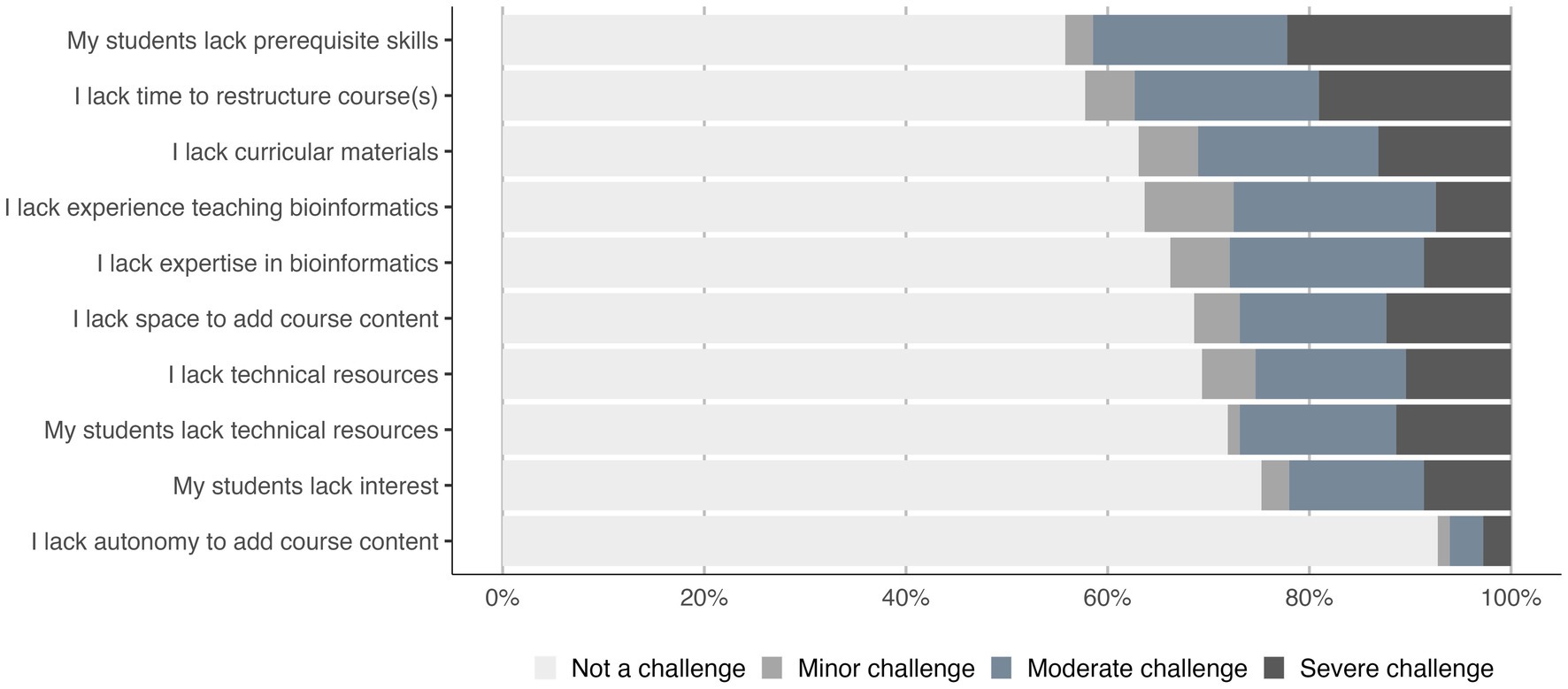Bioinformatics Tutor Fundamentals Explained
Bioinformatics Tutor Fundamentals Explained
Blog Article
Some Known Factual Statements About Bioinformatics Tutor
Table of ContentsSome Known Details About Bioinformatics Tutor The Main Principles Of Bioinformatics Tutor Unknown Facts About Bioinformatics TutorFascination About Bioinformatics TutorBioinformatics Tutor Things To Know Before You Get This
Of the total amount participants involved in the training, 80% were pupils from public higher education and learning organizations, while the remaining 20% originated from personal establishments. To certify for a certificate of involvement, students were called for to attend at the very least 90% of the overall training hours. As an outcome of this demand, an excellent 95% of the individuals efficiently obtained their certifications, having not only fulfilled the minimum presence criteria however also completed all assigned activities throughout the training.
During the elevation of the COVID-19 pandemic, specifically between June and August 2020, the job team was charged with organizing specialized training in bioinformatics. This training was especially aimed at trainees from the research team Nucleus for Research study in Applied Computer at the Federal University of Pará (UFRA) The adjustment to remote learning platforms as a result of the pandemic developed a chance to explore new training approaches and electronic devices that improved both reach and performance.
This program was designed to supply an obtainable yet thorough review of Artificial Intelligence techniques, specifically as used in bioinformatics (Bioinformatics Tutor). This online format made it possible for involvement from students throughout Brazil, numerous of whom may not have had the chance to participate in in-person sessions.
An Unbiased View of Bioinformatics Tutor
A significant feature of this training course was its emphasis on hands-on understanding. Roughly 50% of the complete training hours were dedicated to sensible activities where pupils built intelligent versions and applications in a variety of clinical domains, including genes, molecular biology, and environmental data analysis. Widely utilized devices and structures such as Spyder, Google Colab, Jupyter Notebooks, and Orange were incorporated into the coursework. These platforms made it possible for students to engage in real-time information manipulation, design training, and formula trial and error.
The program brought in 80 individuals in total. Sixty of them were affiliated with different college institutions in the state of Pará, while the remaining twenty came from institutions located in five other Brazilian states. This broad geographical representation highlighted the national rate of interest in bioinformatics and the expanding need for specialized abilities in this location. By presenting Artificial Knowledge in a pertinent and practical context, the initiative served to bridge the space in between theory and real-world application, offering trainees with a solid foundation for future research or work in the area.
The training campaign developed part of a more comprehensive scholastic outreach effort referred to as the Bioinformatics when driving job. This job has, over the years, presented lots of trainees to the globe of bioinformatics and computational biology. The events held under this umbrella effort have happened across multiple areas and years, as summarized in Table 1 (List of occasions, locations, years, and complete numbers of students and trainers)
One of one of the most exceptional click resources results of the Bioinformatics when driving effort has been its payment to the growth of decentralized research teams. Several of these teams, initially combined by their involvement in training occasions, have since taken place to produce independent clinical research in partnership with local scholastic institutions. The training not just fostered clinical reasoning within the context of bioinformatics but additionally sparked joint relationships that prolonged past the training atmosphere. These cooperations have caused increased regional clinical productivity and added meaningfully to the development of the wider bioinformatics area in Brazil.
The Only Guide for Bioinformatics Tutor
The exact Click Here same team, leaving out IH and RR, additionally acted as tutors for the functional training modules. Funding for the task was provided with the grant 88887.200562/ 2018-00 from CAPES.
The Federal University of Pará's Workplace of Research study (PROPESP/UFPA) also provided economic support, specifically for the manufacturing of the last manuscript. The authors proclaim no commercial or financial disputes of interest that can have affected the research. In addition, all viewpoints and interpretations expressed in this write-up are entirely those of the writers and do not necessarily reflect those of their corresponding organizations, the author, editors, or reviewers entailed in the publication process.

Indicators on Bioinformatics Tutor You Need To Know
From a pedagogical point of view, the teaching strategy utilized in the training was intentionally interactive. Classes were conducted in a way that urged trainee engagement and discussion, exceeding rote memorization to check out just how concepts are created, applied in day-to-day live, and evaluated in scholastic settings. The training philosophy focused on supporting both strong and having a hard time pupils, offering customized support, and building confidence with continual mentorship and perseverance.

Each group, including around 36 participants, was supported by 3 mentors-- a lot of whom were postdoctoral scientists with specific competence. These mentors not just assisted develop the team jobs yet likewise facilitated their implementation, ensuring that each study question was both pertinent and properly tough. The goal was to give a biologically practical context that individuals could check out through flexible objectives and access to curated datasets.
For added insights right into the methodology and results of this project-based knowing strategy, readers are guided to S1 Text, which includes in-depth summaries of the pedagogical structure, evaluation methods, and task themes utilized in the training sessions.
Bioinformatics Tutor Can Be Fun For Anyone
Of the total amount participants involved in the training, 80% were trainees from public greater education and learning establishments, while the remaining 20% came from private organizations. To certify for a certification of engagement, pupils were needed to go to at the very least 90% of the overall training hours. Notably, beyond the trainees who signed up in the training sessions, 7 seasoned teachers got involved in delivering the courses, while three dedicated research professors coordinated the overall training process. Approximately 50% of the total training hours were dedicated to practical activities where students constructed smart versions and applications in an array of clinical domain names, including genetics, molecular biology, and environmental information evaluation. The training not just promoted scientific thinking within the context of bioinformatics but additionally triggered joint connections that prolonged beyond the training environment.
Report this page